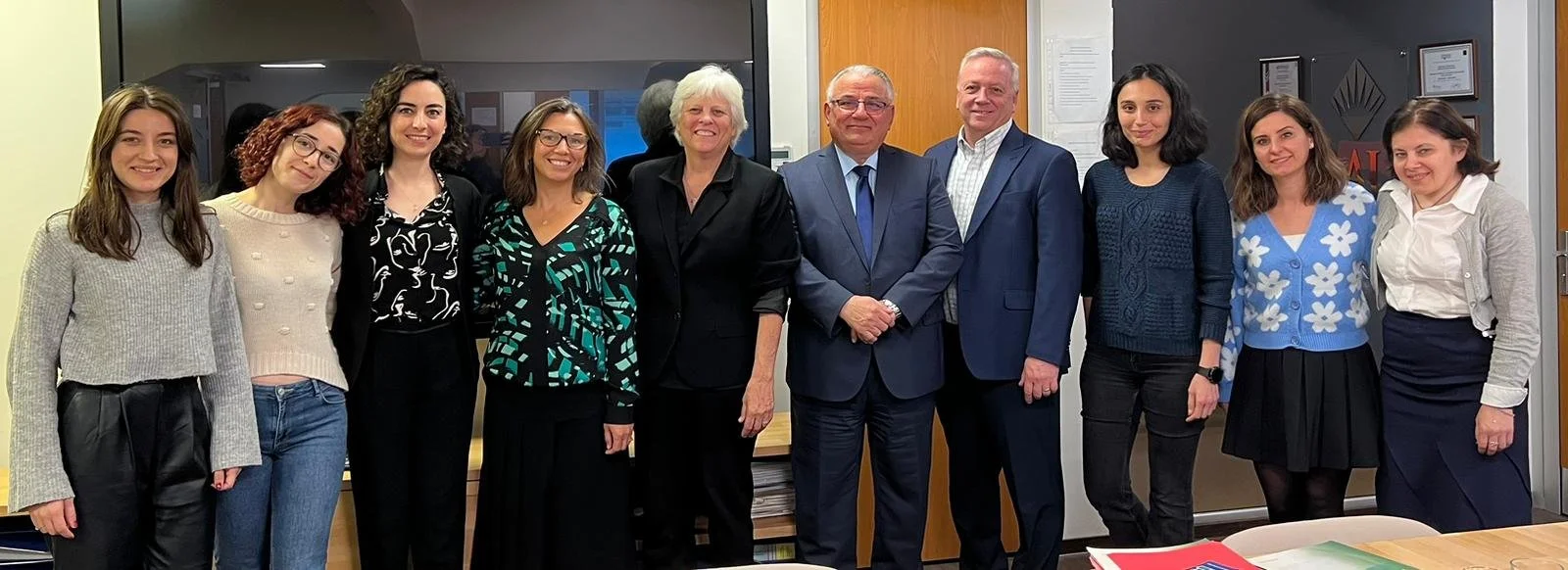Dr. Hatch Speaks in the Republic of Türkiye (Turkey)
/Hatching Results was represented at the International Education Congress held on November 17-19 at the AKSA Hotel in Antalya, Turkey. Sponsored by Akdeniz University, Dr. Trish Hatch was the invited keynote speaker at the annual EDU Congress. Speaking to hundreds of university professors and state educators both in-person and online, Dr. Hatch opened the international conference by speaking on her favorite subject - “School Counseling: Where We’ve Been, Where We Are, and Where We Are Going!” The following day, Dr. Hatch provided a 90-minute workshop to a well-attended audience titled, “The Use of Data in School Counseling: Making a Difference with Data Driven Practices.” Accompanying Dr. Hatch on this journey was her brother and longtime consultant with Hatching Results, Paul Meyers, who recently retired as superintendent of Standard School District in Bakersfield.
Prior to attending the conference, Dr. Hatch and I spent the afternoon with the dean and the professors in the School Counseling Department at Bahcesehir University in Istanbul. This provided a deep dive into the Turkish educational system and the challenges facing school counselors in schools across Turkey. Similar to the United States, the school counseling profession in Turkey suffers from the same lack of identity and appreciation of the integral role of school counselors.
Turkey has a very strong, centralized educational system. Consequently, with annual survey input from students, parents, and staff, the Ministry of National Education has developed a highly structured school counseling curriculum. However, the country lacks an adequate number of school counselors in schools to provide any kind of preventative program, and most counselors are responding to crisis after crisis. Turkey has no standardized system for collecting performance data and has no way to measure the effectiveness of school counseling or any other program in school, including instruction.
School counselor training was an area of controversy at the university level. In Turkey, schools require counselors working in schools to have a Bachelor’s level degree. School counselors are also trained as community counselors, not specifically as school counselors. Many university leaders advocate for increasing the school counselor certification to require a minimum of a master’s degree. On the contrary, many of the professors at the university had an opposing view, and argued for counselors to remain as generalists because they serve both their schools and their communities. Currently in Turkey, school counselors do not have a mental health or social service system of support to refer students or families to when they are in crisis. Professors argued that if school counselors worked primarily with all students providing tier 1 services, who would help the students in tier 3?
Dr. Trish Hatch and Paul Meyers visit the School Counseling Department at Bahcesehir University in Istanbul.
Of course, similar conversations still occur in our schools across the United States, and Dr. Hatch was able to navigate the conversation well and provide some historical examples of how the school counseling profession worked together to earn professional legitimacy and gain the organizational, institutional, and political clout needed to make substantial and systemic change.
A highlight of the trip for us was meeting several students at the conference with their professor and feeling inspired by their enthusiasm, both in the possibility for forward progress in the school counseling profession and the value of the use of data in their work when they graduate.
The trip to Turkey was long, but it was worth it. Educational leaders around the world are looking for ways to improve the efficacy of the school counseling profession. The need for schools to provide comprehensive school counseling programs, improve student achievement and increase student support services is universal.



